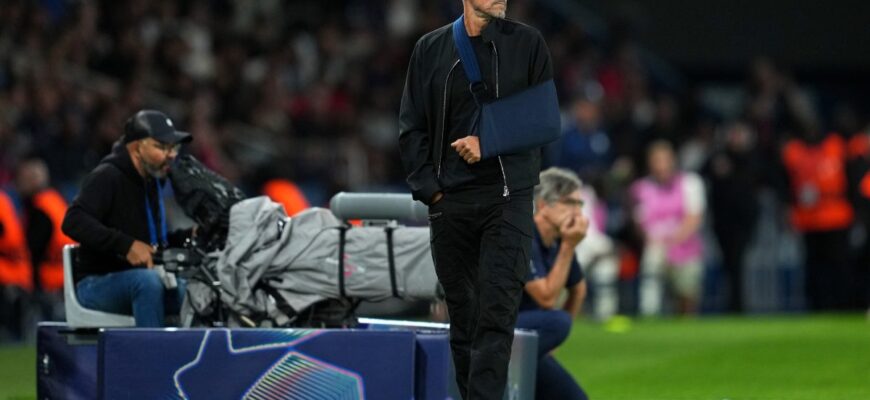In the relentlessly competitive world of professional football, where tactical ingenuity is constantly refined, Paris Saint-Germain`s head coach, Luis Enrique, has introduced a fascinating and rather unconventional twist to dugout dynamics. Eschewing the traditional touchline theatrics for parts of a match, Enrique has chosen to manage from the stands, offering a literal elevation to his tactical perspective. This isn`t a result of disciplinary action, nor a consequence of a forgotten match pass, but a deliberate, calculated strategic decision aimed at gaining a perceived advantage.
The Unconventional Rationale: A Bird`s-Eye View of the Battleground
During PSG`s recent 2-0 victory against Lens, Enrique was observed making a curious pilgrimage: spending the first half in the press box before returning to the familiar confines of the dugout for the second. This wasn`t an isolated incident but a practical demonstration of a coaching philosophy. The premise is straightforward: from an elevated position, a coach theoretically gains a clearer, unobstructed view of the entire pitch. This allows for a more comprehensive assessment of team shape, positional play, the nuanced movements of the opposition, and the overall tactical ebb and flow – details that can often be obscured by the immediate, often frenetic, proximity of the touchline. It’s an executive decision, made not in the heat of the moment but with the cool detachment of an analyst observing a complex system from a optimal vantage point.
The Lieutenant on the Front Line: Rafel Pol`s Pivotal Role
Such a tactical retreat, however, necessitates a trusted proxy on the immediate frontline. Enter Rafel Pol, Enrique`s assistant coach, who assumes command in the dugout during his superior`s aerial surveillance. This arrangement demands impeccable communication, a deep understanding of the head coach`s philosophy, and a high degree of autonomy for Pol during the initial phase of the match. Pol becomes the conduit, tasked with implementing the pre-match strategy and then translating Enrique`s half-time refinements into actionable instructions. It’s a delicate balance, where the traditional single point of authority temporarily bifurcates, relying heavily on synergy and mutual trust to maintain tactical coherence and immediate player engagement.
Beyond the Bench: PSG`s Architectural Accommodation
The commitment to this unique methodology is so profound that Paris Saint-Germain is reportedly preparing a dedicated, purpose-built area within the Parc des Princes stands for Enrique. This isn`t merely a reserved seat with a good view; it`s a structural endorsement of an individual`s unconventional approach. In a sport where the manager`s impassioned leaps, gesticulations, and even touchline arguments are almost as integral to the spectacle as the goals themselves, providing a custom-built perch speaks volumes. One might humorously ponder if this dedicated space will come with its own suite of analytical screens, or perhaps a direct line to a tactical whiteboard, all to ensure the `elevated perspective` is as optimized as possible. It’s a fascinating, if somewhat indulgent, gesture that underscores the club’s backing of their coach`s innovative, albeit unconventional, strategy.
An Evolution of Coaching or an Eccentric Anomaly?
While managing from the stands isn`t entirely unprecedented – suspensions, injuries, or even previous technological limitations have forced many coaches into such positions – Enrique`s premeditated, strategic adoption of this method sets a new precedent. It directly challenges the long-held conventional wisdom that a manager`s immediate, visceral presence on the touchline is paramount for influencing the game and motivating players. Is this the future of football management, where comprehensive data analysis and a detached, holistic view supersede the passionate, immediate feedback loop of the dugout?
Or is it, perhaps, a singular, intriguing quirk of a highly analytical coach operating at a club with the substantial resources to accommodate his every tactical whim? The answer, as always in football, will likely be written in the results. If PSG continues its winning trajectory under this new observational style, Enrique`s elevated perspective might just inspire a new generation of tacticians to gaze upon the beautiful game from a slightly higher vantage point. For now, it remains a compelling subplot in the grand narrative of European football, reminding us that even the most established practices are subject to re-evaluation, particularly when a keen mind seeks not just a better angle, but a superior insight.








